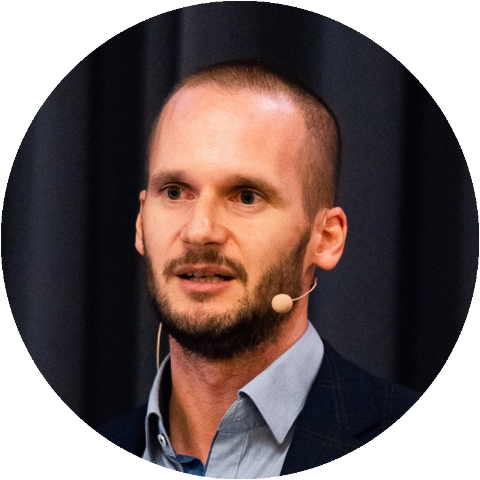Hello Halszka, would you like to introduce yourself? Who are you? What are you doing?
Hello Julia, I would love to. I trained as an architect, but my heart is beating more and more for interior design. And that’s what I do now. I design interiors with a focus on the home.
The beginning
When and how did you decide to become self-employed?
I am an individualist and have always known that I wanted to do something of my own at some point. I designed my first interiors independently straight after graduating and have been doing my own small projects on the side ever since. The decision to finally become self-employed came when I simply got too many private projects at once and it became too difficult for me to combine this with my work as an employee. That was an ‘either or’ moment for me.
What has changed for you since then?
My life has changed in various ways. Firstly, I have greater flexibility in terms of my time and way of working. Instead of a fixed structure from Monday to Friday, 8 hours a day, I can now organise the day and working hours according to my own needs. This freedom allows me to work more efficiently and better balance my personal and professional time.
Opportunity for personal and professional development
Another big difference is the responsibility I now have. As a self-employed person, I am responsible for all aspects of my business, be it customer acquisition, bookkeeping, or developing my skills and services. This responsibility can be challenging at times, but it also offers an incredible opportunity for personal and professional development.
Motivation has also changed a lot. It used to be more pressure from outside, from my boss. Now I have to find the motivation within myself. And that’s actually the nice thing, because I work for my own name, my own brand.
What have been your biggest challenges so far and how have you overcome them?
The first big challenge was deciding that I was ready to take the plunge into self-employment. I always found lots of excuses to put it off because I thought I still had so much to learn. And that’s true – learning never stops, the only question is whether you dare to learn on your own or whether you prefer to work in an office where you have the support of colleagues and a boss. Ultimately, I came to the conclusion that I can develop better if I know that I am working on my own projects.
Typical problems faced by freelancers
The other challenges I have faced so far are typical problems of freelancers. There are times when there aren’t enough orders and you wonder if this is the end. Then three projects come in at once and suddenly you’re overwhelmed. Um damit gut umzugehen, habe ich gelernt, flexibler zu sein, mich anzupassen und Prioritäten zu setzen, um die Zeit optimal zu nutzen. Ich finde es auch sehr hilfreich, mich mit den anderen Freiberuflern auszutauschen. Then I see that I’m not alone and can be inspired by how others deal with the same problems.
What vision are you following? What drives you?
Creativity has always been my greatest motivation. And I love challenges. I see every house, every room and every spatial situation as a problem that needs to be solved. I am also empathetic and love the feeling of being able to help people. Even a good floor plan can improve the quality of life so much. If you then add the right materials, colours, lighting and furniture, you’re halfway there.
How do you motivate yourself when things aren’t going so well?
As already mentioned, I have a few friends who are also self-employed and have similar challenges. We support each other and exchange ideas, which is very helpful. Sport and art are also an important source of motivation for me. When I’m not feeling well, I also remember what it was like when I worked as an employee. I then ask myself whether it would be better for me to work in an office again. But so far the answer has always been ‘no’. This reminder helps me to appreciate my journey as a self-employed person and to accept the challenges as part of my personal growth process.
“Balance between being true to myself and being able to fulfil my customers’ wishes.”
What is your recipe for success?
My recipe for success is still evolving as I am constantly on the road to success. But what I feel is very important so far is a good balance between being true to myself and being able to fulfil my customers’ wishes. On the one hand, my work is a great passion of mine and it is very important to me that I am satisfied with my designs. On the other hand, my customers’ satisfaction is my top priority and I want to make sure that people feel comfortable in the spaces I design. That’s why I think it’s crucial to have a detailed discussion with my clients right from the start to find out whether I’m actually the right specialist for them and whether I can fulfil their needs well. It may turn out that we should perhaps work with a completely different style than usual to achieve their goal.
To what extent did the start-up coaching with us help you? Looking back, what was the most valuable thing you took away with you?
I found it very valuable to be able to talk to so many specialists from various fields. They were all freelancers and have themselves made the leap from employee to freelancer. It was definitely very inspiring to hear so much history alongside the practical knowledge. I had no idea about marketing or web pages. The coaching really helped me to think about my strategy, how I want to be seen by my potential customers and how they can best find me. Das andere war natürlich praktisches Wissen über Buchhaltung und Recht. Although I had relatively few lessons, the coaching was very helpful for me and gave me more awareness at the beginning.
What advice would you give to other people who are thinking about doing their “own thing”?
You are never ready and there is no ideal time to start your own business. That’s what many self-employed people I know say. It’s a big leap out of the comfort zone. It hurts, but it also brings a lot of satisfaction when it succeeds. And I know very few people who regret taking this step. Of course, it is important that it is not a spontaneous decision. You should prepare yourself in advance, both financially with savings and mentally and strategically. You should also have a rough vision in mind and perhaps a little experience with self-employment as a sideline. And last but not least, whenever I’m faced with a difficult decision, I ask myself a fundamental question: “Do I regret it more if I try and it doesn’t work, or if I don’t dare to try and have no idea how to do it?
You have one wish. What do you wish for?
My greatest wish is to maintain my passion and enjoyment of self-employment, because the profession I have chosen for myself is also something I identify strongly with.
Dear Halszka, thank you for the interview.
Website: https://www.hala-anto.com/
Instagram: https://www.instagram.com/hala_anto_interiors/
LinkedIn: www.linkedin.com/in/



